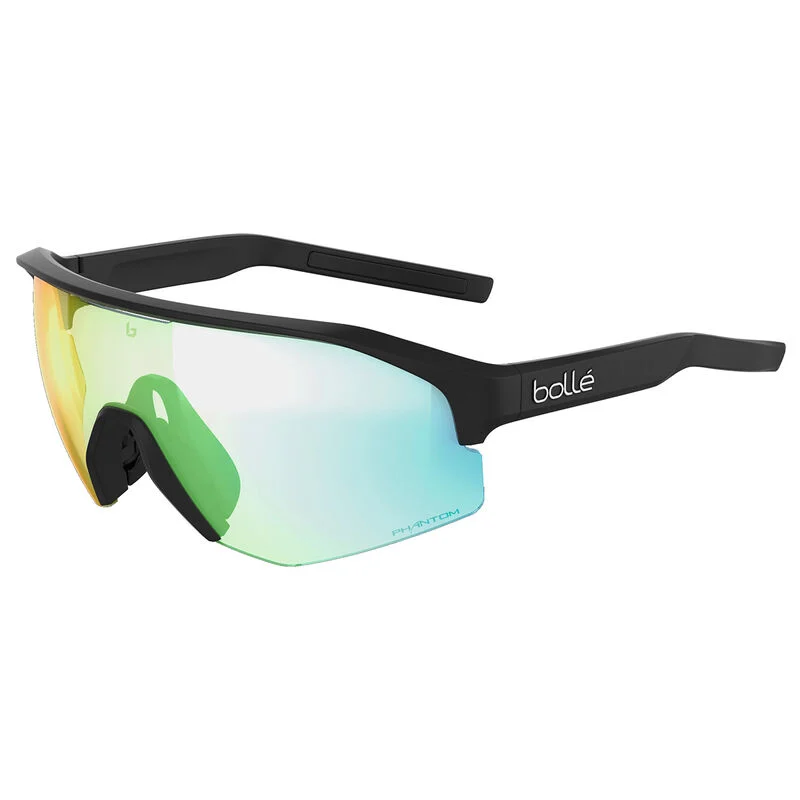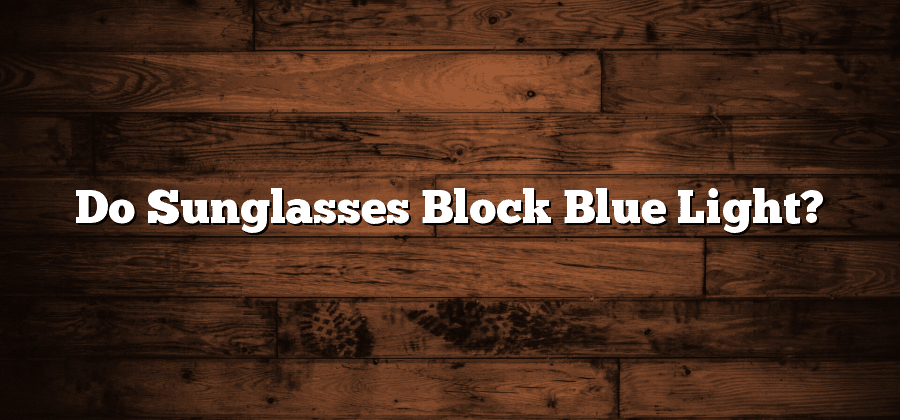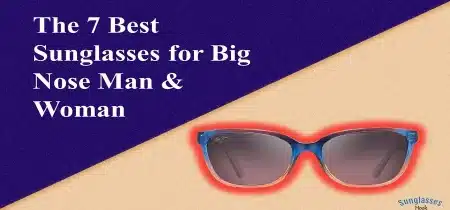Sunglasses are more than just a fashion statement. They play a crucial role in protecting our eyes from harmful ultraviolet (UV) radiation, as well as providing comfort and enhancing visual clarity. In recent years, there has been increasing attention on the effects of blue light emitted from digital screens and artificial sources on our eyes and overall well-being. This has led to the emergence of blue light-blocking glasses and lenses. However, the question arises: do sunglasses effectively block blue light? In this post, we will delve into answering the question: do sunglasses block blue light, examining the different types of lenses and their protective capabilities.
Understanding Blue Light
Blue light is a component of the visible light spectrum and is characterized by its short wavelength and high energy. It is present in sunlight and also emitted by various artificial sources, such as digital screens, LED lights, and fluorescent bulbs. While blue light is essential for regulating our circadian rhythm and promoting alertness during the day, excessive exposure to it can have negative effects on our eyes and sleep patterns.
Types of Sunglasses Lenses

- Standard Sunglasses Lenses
Traditional sunglasses primarily aim to protect the eyes from harmful UV radiation. They are designed to block both UVA and UVB rays, which are known to contribute to conditions like cataracts, macular degeneration, and photokeratitis (sunburned eyes). However, standard sunglasses lenses do not typically target blue light specifically.
- Polarized Lenses
Polarized lenses are commonly used in sunglasses to reduce glare and improve visual comfort. They work by selectively blocking certain light waves that create horizontal glare, such as reflected sunlight from water or shiny surfaces. While polarized lenses can enhance visual clarity, they do not have a significant impact on blue light filtration.
- Blue Light-Blocking Lenses
Unlike traditional sunglasses, blue light-blocking lenses are specifically designed to filter out a portion of the blue light spectrum. These lenses typically have a yellow or amber tint, as these colors are known to effectively block blue light. The specific wavelength range of blue light filtered can vary depending on the lens manufacturer. Some blue light-blocking lenses claim to filter out up to 90% or more of blue light, reducing eye strain and potential sleep disturbances caused by excessive exposure.
Effectiveness of Sunglasses in Blocking Blue Light
While blue light-blocking lenses have gained popularity, it is important to note that their effectiveness can vary based on several factors:
- Lens Quality: The quality of the lens plays a crucial role in its ability to filter blue light effectively. Higher-quality lenses with advanced coatings and materials are likely to offer better protection.
- Wavelength Filtering: Different blue light-blocking lenses filter different portions of the blue light spectrum. Some lenses primarily block blue light in the 400-450nm range, while others may cover a broader range up to 500nm. It is essential to check the lens specifications to understand the extent of blue light filtration.
- Color Perception: Blue light-blocking lenses with a yellow or amber tint may alter color perception, making certain objects appear differently. This can be a subjective experience and may vary from person to person.
- Digital Device Usage: Blue light emitted by digital screens is a growing concern. While blue light-blocking lenses can reduce the amount of blue light reaching the eyes, they may not eliminate it entirely. It is still advisable to follow good screen habits, such as taking regular breaks and adjusting display settings to reduce blue light emission.
Conclusion
In conclusion, sunglasses primarily designed for UV protection may not effectively block blue light unless they are specifically labeled as blue light-blocking lenses. Blue light-blocking
lenses with a yellow or amber tint can help reduce the amount of blue light reaching the eyes, potentially minimizing eye strain and sleep disturbances associated with excessive exposure to blue light. However, the effectiveness of blue light-blocking lenses can vary depending on factors such as lens quality, wavelength filtering, and personal color perception. It is crucial to choose high-quality sunglasses or specialized blue light-blocking glasses that are tailored to your specific needs and preferences.
While sunglasses play a significant role in eye protection, it is equally important to adopt healthy screen habits and maintain a balanced exposure to natural light. Consulting with an optometrist or eye care professional can provide personalized guidance on selecting the most suitable eyewear to protect your eyes from UV radiation and blue light, ensuring optimal eye health and visual comfort in today’s digital age.



Recent Comments